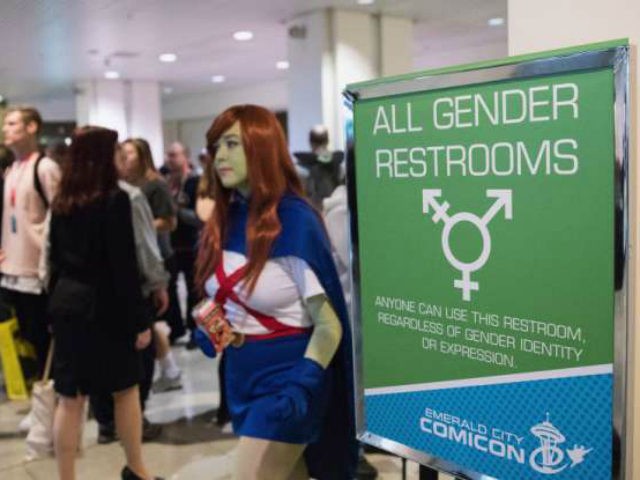President Joe Biden’s single appointment to chair the Equal Employment Opportunity Commission (EEOC) is pressing employers to embrace transgender ideology.
Roger Severino, who served as the director of the civil rights division of Health and Human Services (HHS) in the Trump administration, is warning about Chair Charlotte Burrows’ unilateral decision to put in place protections for every one of the continually expanding list of sexual persuasions.
One EEOC commissioner, Andrea Lucas, shares Severino’s concerns and issued a statement about how Burrows issuing her own guidelines deprived the whole commission of the opportunity for debate and a majority vote.
Severino wrote in a op-ed published Tuesday on the National Review website about Burrows’ claims her guidance is based on the Supreme Court decision Bostock v. Clayton County, “which redefined Title VII’s prohibitions on discrimination ‘because of sex’ to include sexual orientation and transgender status in certain contexts.” Severino wrote:
Perhaps most troubling … the guidance seeks to prohibit employers from having dress codes, and shared bathroom, locker, and shower policies based on biological sex (what the guidance calls sex ‘assigned’ at birth) as opposed to subjective gender identity. The guidance takes the startlingly unscientific proposition that a person’s sex is ultimately what a person declares it to be, regardless of DNA, birth certificates, or presence or absence of reproductive organs.
“If employers and employees fail to conform to this new edict, they now risk the EEOC’s wrath,” Severino wrote.
Severino included part of Commissioner Lucas’s statement, which said that she was “disappointed” with Burrows’ move:
The Supreme Court in Bostock addressed only the question of whether an employer who fires an individual for being homosexual or transgender has discriminated against that individual “because of such individual’s sex. . . .”
However, under the guise and cover of Bostock, the Chair purports to extend to private employers several (pre-Bostock) federal sector administrative decisions relating to dress codes, use of pronouns, and access to bathrooms, locker rooms, and showers—implying that compliance with Bostock requires nationwide acquiescence to the policies and interpretations in these decisions. This sleight of hand is inexplicable when juxtaposed with the Court’s decision in Bostock, including its express statements that its decision did not concern, much less resolve, some of these critical issues. . . .
Old decisions issued in cases solely involving federal government employee complaints and other pre-Bostock actions do not bind the Commission’s hands. The Commission is free to change its posture and adopt different positions, or on the other hand, reach the same prior conclusions based on the rationales approved by the Bostock Court. Either way, the full commission has not yet been given the opportunity to do so.
“Lack of proper process leaves this guidance ripe to legal challenge as do its many substantive errors,” Severino said. “Chief among the mistakes is the idea that Bostock ruled on the amorphous, infinitely multiplying concept of gender identity. It didn’t.
“Bostock presumed sex is binary and biological and said employee-dismissal prohibitions in Title VII applied to ‘transgender status,’ meaning a person who identifies as the opposite of one’s biological sex of either male or female,” she went on to say.
Bostock does take into account things like “preferred pronouns.”
Here are examples of the kind of expansion of sexual orientation protections Burrow’s guidance includes:
- The Commission has taken the position that employers may not deny an employee equal access to a bathroom, locker room, or shower that corresponds to the employee’s gender identity. In other words, if an employer has separate bathrooms, locker rooms, or showers for men and women, all men (including transgender men) should be allowed to use the men’s facilities and all women (including transgender women) should be allowed to use the women’s facilities.
- Could use of pronouns or names that are inconsistent with an individual’s gender identity be considered harassment? Yes, in certain circumstances. Unlawful harassment includes unwelcome conduct that is based on gender identity.
- Is an employer allowed to discriminate against an employee because the employer believes the employee acts or appears in ways that do not conform to stereotypes about the way men or women are expected to behave? No. Whether or not an employer knows an employee’s sexual orientation or gender identity, employers are not allowed to discriminate against an employee because that employee does not conform to a sex-based stereotype about feminine or masculine behavior.
You can read the entire guidance document here.
Follow Penny Starr on Twitter or send news tips to pstarr@breitbart.com.

COMMENTS
Please let us know if you're having issues with commenting.